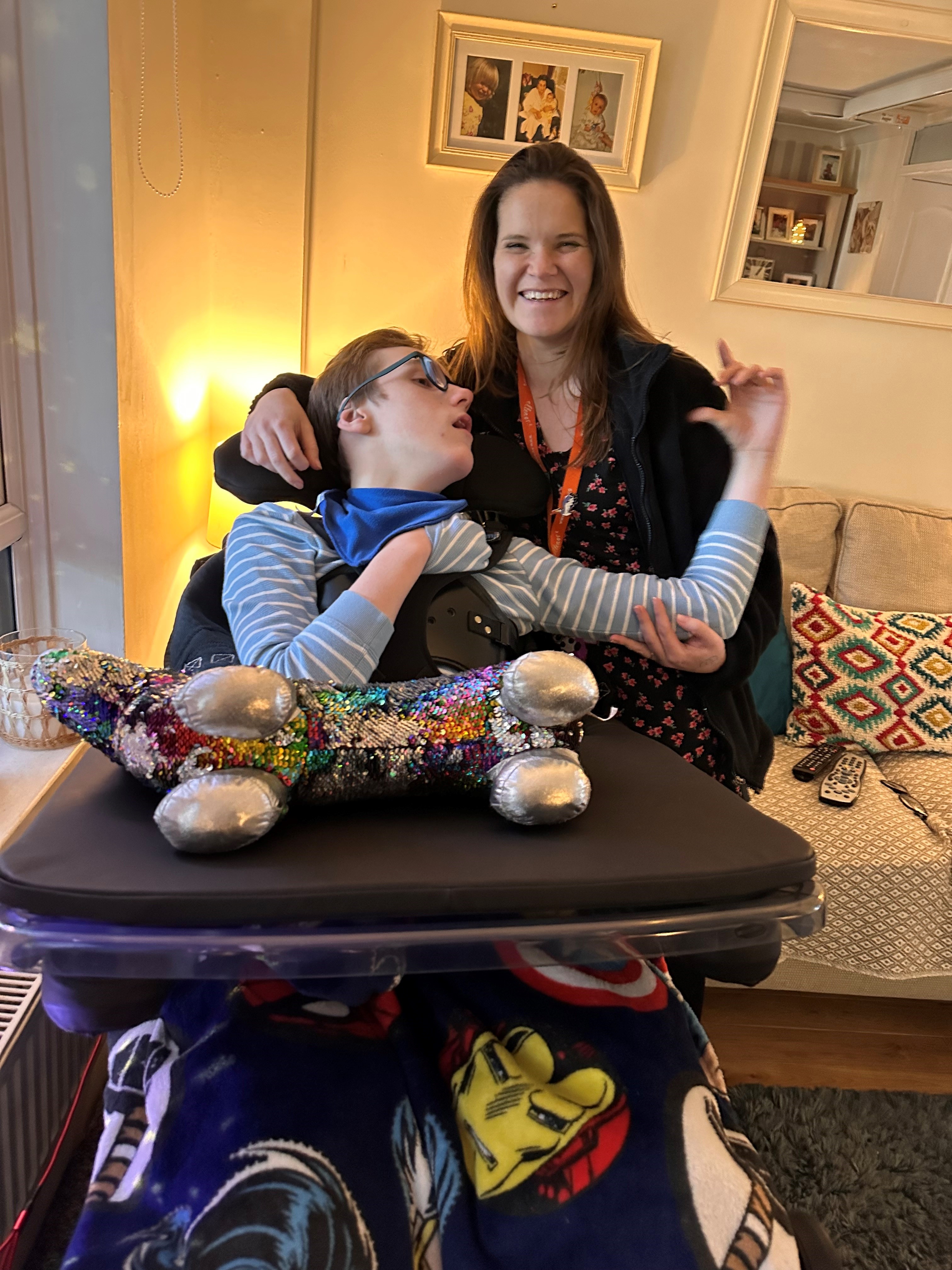Kristene has been a children’s nurse for almost nine years. She began her nursing career at Queen Elizabeth Hospital in Woolwich in the children’s general ward, caring for children with asthma and diabetes. When offered a position in the children’s oncology ward she had some initial reservations but recognised that “it’s always good to upskill yourself” and subsequently accepted. Over each child’s three-year course of treatment, Kristene loved supporting their families and became a kind of extended family to children under her care. So when she met Tina, one of ellenor’s Palliative Clinical Nurse Specialists, Kristene was keen to apply for a position within the friendly, dedicated team. “To do this job, you need good communication skills. You don’t want your words to be misconstrued and you need to be able to diffuse heated conversations. You also need compassion, adaptability and problem-solving abilities. You’re often on your own in children’s homes so need to be able to think on your feet.”
“Every day is different,” Kristene says when asked about her typical day. “While each week our team attends the same appointments to care for our oncology children, the rest of the week we’ll visit families in their homes, offering any support they need.”
“As a small team of clinical nurses, we have about 50 patients in our care,” Kristene begins. In this community-based role, an ellenor paediatric nurse will spend part of their week visiting oncology patients at home or school, administering medication and taking routine blood for chemotherapy.
“The Respite Team provides relief to families throughout the week - depending on the needs of the child and family”, and once a month the nurses visit children in their care with life-limiting conditions. Kristene adds that families can contact the team to request more frequent visits which the team are happy to offer. “It’s a very flexible job,” Kristene explains, “we have a few set appointments each week but plans can change and new visits crop up.”
At ellenor, care is typically provided from Monday to Friday between 8:30 AM and 5:30 PM unless a child needs end-of-life care, in which case the team is on hand 24/7. “We don’t stay in the family’s home or take shifts. Rather, if the tertiary team feel the child needs something, we’ll come out".
While Kristene finds her role fulfilling, it hasn’t been without its challenges. “This kind of nursing isn’t like changing wards. It’s a specialised area. When I first started, I struggled seeing kids in their own homes, it felt like I was invading their safe space, but ellenor was so supportive; I was allowed to settle into the role at my pace - unlike some previous roles I’ve had. It was such a big culture shock.” ellenor nurses continue to be supported with their caseloads by fortnightly multi-disciplinary team meetings. “The whole team can help if you’re having difficulty with something at work,” which can still occur even after years of experience.
Kristene has been a children’s nurse for almost nine years. She began her nursing career at Queen Elizabeth Hospital in Woolwich in the children’s general ward, caring for children with asthma and diabetes. When offered a position in the children’s oncology ward she had some initial reservations but recognised that “it’s always good to upskill yourself” and subsequently accepted. Over each child’s three-year course of treatment, Kristene loved supporting their families and became a kind of extended family to children under her care. So when she met Tina, one of ellenor’s Palliative Clinical Nurse Specialists, Kristene was keen to apply for a position within the friendly, dedicated team. “To do this job, you need good communication skills. You don’t want your words to be misconstrued and you need to be able to diffuse heated conversations. You also need compassion, adaptability and problem-solving abilities. You’re often on your own in children’s homes so need to be able to think on your feet.”








